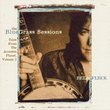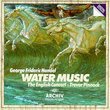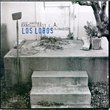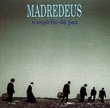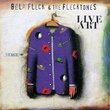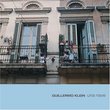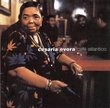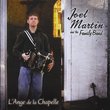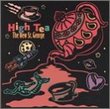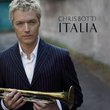| All Artists: Stephan Micus Title: On the Wing Members Wishing: 3 Total Copies: 0 Label: ECM Records Original Release Date: 1/1/2007 Re-Release Date: 4/24/2007 Genres: International Music, Jazz, Special Interest, New Age, Pop Styles: Jazz Fusion, Experimental Music, Instrumental Number of Discs: 1 SwapaCD Credits: 1 UPCs: 602498545164, 0602498545164, 060249854516 |
Search - Stephan Micus :: On the Wing
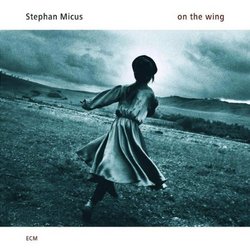 | Stephan Micus On the Wing Genres: International Music, Jazz, Special Interest, New Age, Pop
O-CARD |
Larger Image |
CD DetailsSynopsis
Product Description O-CARD Similarly Requested CDs
|
CD ReviewsA mature, meditative work Jens | Montréal | 12/19/2007 (5 out of 5 stars) "Like another reviewer, I have enjoyed Stephan Micus's music for many years. In fact, the first CD I ever purchased was his Darkness and Light, still a favorite. Two others I find most satisfying are The Music of Stones (in which used sampled sounds of stones being struck) and Twilight Fields (which combines the music of flower pots, hammered dulcimers, Bavarian zither, and schakuhachi). The present CD is not as adventurous in terms of the music or use of "found" instruments, but "On the Wing" certainly has qualities to recommend it. The most noticeable is its meditative mood. As usual, his eclectic instrumental prowess is on display: instruments include sattar, mudbedsh, classical guitar, nay, sho, hné, suling, Tibetan cymbals, gongs, hang, 14-string guitar, steel string guitar, shakuhachi, mandobahar, and sitar. Recorded over a period of three years, "On the Wing" shows a certain maturity in Micus's musical development. One sensed on earlier CDs that, perhaps, he was more interested in doing things because they were different and simply because he could. Here (on his 17th CD for ECM), the music seems more considered and (certainly) more restrained in its overall texture. Whereas his earlier music was generally classified as "new age," the music on this CD tends more toward the contemporary music of serious composers, albeit more accessible and less difficult to grasp. As Micus says of "On the Wing": "For me this is like a journey or a story: the start of a movement that is transformed in many ways and eventually comes to an end.... Rather than writing my music in score notation I work with recording machines right from the start. I improvise on an instrument until I come upon a phrase which strikes me as interesting. Such a phrase normally works as a seed for musical development and elaboration. Due to the presence of the tape machines I always have a perfect mirror of my music even if I stop working on it for longer periods. It's very important for me to leave pieces alone for a while and then to listen to them again with a certain distance. I experiment with different combinations of instruments and phrases and allow them to grow organically."" A Gifted Multi-Instrumentalist Steve Vrana | Aurora, NE | 01/25/2009 (4 out of 5 stars) "I like to think that in my 40-plus years of collecting music that I have a fairly expansive range of tastes. However, I have to admit up front that in spite of Stephan Micus' 30-year recording history, I had never heard of him until purchasing this CD.
I have long enjoyed celtic and African music, but that has been pretty much the extent of my world music experience. ON THE WING has changed that. Over the course of the album's ten tracks, Micus encorporates no fewer than dozen different instruments--all of which he plays himself; there are no other musicians. Some are of his own making, such as the 14-string guitar which he employs on "The Bride." Most are traditional instruments of a variety of Asian and Middle Eastern countries. Among them are the mudbesh, an Iraqi single reed instrument made from cane; the nay, an ancient Egyptian hallow reed flute; and the sattar, a long-necked bowed instrument from Western China. On some tracks, Micus uses the instrument strictly solo. "The Gate," for instance, is a sitar solo. While traditionally this Indian instrument has a total of twenty strings (thriteen sympathetic strings and seven melody strings), Micus has modified this instrument to have only two strings. As such, there is a simple, stately beauty to the song. "Morning Sky" features the double reed hne from Burma. As a solo instrument, it has something of a piercing sound, but when Micus multi-tracks the instrument, it gives it a very solemn quality. (It reminds me of bagpipes.) The most expressive songs are the ones where Micus combines several of these instruments to create an ensemble sound. One of the album's lovelier tracks is "Ancient Trees," which utilizes the shakuhachi (a Japanese bamboo flute), the sattar, and the mandobahar (an Indian bass bowed instrument). Overall, this is a fascinating collection of songs. There is a haunting, ethereal quality to the music that makes for a rewarding listening experience. RECOMMENDED [Running Time - 49:17] " |

 Track Listings (10) - Disc #1
Track Listings (10) - Disc #1